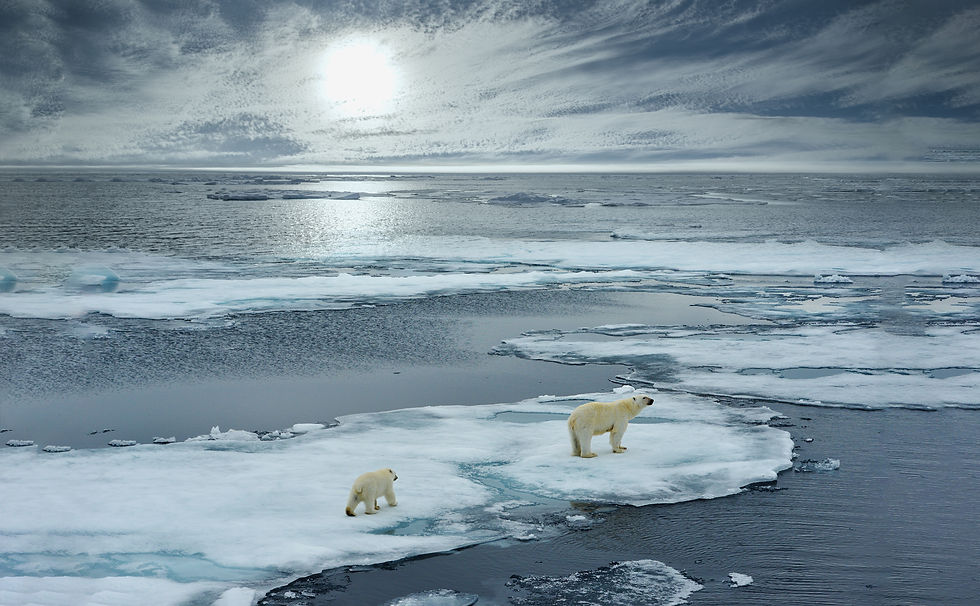Climate Change Effects
- BondMorgan
- Feb 6, 2020
- 3 min read
Updated: Mar 16, 2022
Political rifts on climate issues extend far beyond the question of whether climate change is taking place and what role humans play. Increasing land and ocean temperatures, accelerating sea level rise, melting ice and other extreme weather events are highlighted in a new report compiled by researchers from the University of East Anglia and the US National Oceanic and Atmospheric Administration (NOAA).

Climate change (CO2) and the way the oceans release heat into the atmosphere, as well as the role of human activities in this process. The importance of avoiding the effects of climate change by limiting global warming to 1.5 ° C or more, compared to 2 ° C or more. Professor Andrew Weaver, from the Department of Earth and Environmental Sciences at the University of East Anglia, said: "We have collated data from all areas of climate science and listed a range of impacts, including reduced food security, increased displacement and extreme weather events. We cannot wait until we understand the full range of changes that affect us.
'We cannot wait until we understand the full range of changes that affect us.'
Effects of Climate Change
No one can fully enumerate the effects of climate change, and it is important to remember that natural climate changes are as important as human-induced changes in the Earth's climate. Climate change may be the result of human activity, natural events, or a combination of all three, but the ability of different societies and environmental systems to mitigate and adapt to these changes will vary from country to country and region to region.
Climate models, however, have successfully replicated 20th-century global warming, and they are consistent with what we can expect this century. It is possible to clearly identify climate change in the global record mean temperature, although some warming can be detected, but the general warming is not due to anthropogenic influences. However, this could soon be possible if human activities have a significant impact on global average temperature and sea level rise. This is also possible as techniques are being developed to generate high-resolution climate change data.
Given the urgency of the issue, we are deepening our engagement, not only to play a disruptive role in the human rights community, but also because it shows how climate change affects people's rights and how people respond to the reality and threat that comes with it. Countries must take the necessary steps to help all within their sphere of competence to adapt to the predictable and inevitable effects of climate change, thereby minimising the impact on human health, the environment and the health and well-being of their communities. One of our main goals in mitigating climate change is to make the world a safer, more sustainable place for all people, regardless of race, ethnicity, religion, gender, sexual orientation or gender identity.
This picture illustrates the impact that the driving forces of climate change could have on the climate system and the impact that could have on human health, the environment and human rights.
Climate change includes rising temperatures, rising sea levels and changing populations and habitats of wildlife. One of the most well-known consequences of climate change is the increase in the frequency and severity of extreme weather events such as floods, droughts, storms, hurricanes, floods and forest fires.
The IPCC has published a report concluding that limiting global warming to 1.5 ° C would require far-reaching changes in global temperature and sea level rise. It has been suggested that meeting the 1 to 5 ° C target would require far-reaching changes in global average temperature, sea level and rainfall.
Climate action and health plans for 2014-2019, with a particular focus on man-made greenhouse gases. The WHO, part of the United Nations World Health Organisation (UNGMO), has given climate protection priority in its efforts to raise awareness and combat climate change.
Sources:
https://www.who.int/health-topics/climate-change
https://www.ametsoc.org/index.cfm/ams/about-ams/ams-statements/statements-of-the-ams-in-force/climate-change1/
https://www.un.org/en/sections/issues-depth/climate-change/
https://www.pewresearch.org/science/2016/10/04/the-politics-of-climate/
https://www.amnesty.org/en/what-we-do/climate-change/
https://public.wmo.int/en/media/press-release/multi-agency-report-highlights-increasing-signs-and-impacts-of-climate-change
https://www.metoffice.gov.uk/weather/climate-change/what-is-climate-change
https://climate.nasa.gov/evidence/
https://www.aps.org/policy/reports/popa-reports/energy/climate.cfm
https://www.bbc.com/news/science-environment-24021772
https://climate.nasa.gov/effects/
https://www.science.org.au/learning/general-audience/science-climate-change/1-what-is-climate-change




Comments